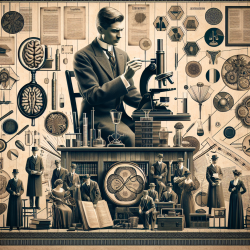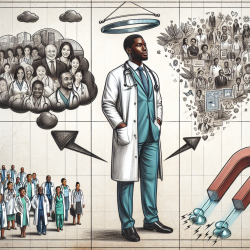Introduction
In the realm of sexual forensics, the 1920s Germany stands out as a pivotal period that reshaped the understanding and adjudication of sex crimes. At the forefront of this transformation was Albert Moll, a renowned sexologist whose expert testimony played a crucial role in courtrooms. This blog delves into the insights from the research article "Sexual Science and Sexual Forensics in 1920s Germany: Albert Moll as (S)Expert" and explores how practitioners today can enhance their skills by learning from the past.
The Role of Expert Testimony
Albert Moll's contributions highlight the significance of expert testimony in shaping legal outcomes. His ability to translate scientific knowledge into courtroom practice was instrumental in expanding the legal definitions of sexual acts. Practitioners can learn from Moll's approach by:
- Understanding the historical context of sexual forensics to appreciate its evolution.
- Recognizing the importance of clear and precise communication of expert opinions.
- Emphasizing the role of scientific evidence in influencing legal decisions.
Enhancing Practitioner Skills
The article underscores the need for practitioners to continually refine their skills in providing expert testimony. Here are some actionable steps:
- Stay Informed: Regularly attend conferences and webinars to stay updated on the latest research and methodologies in sexual forensics.
- Network with Peers: Engage with other professionals to exchange insights and best practices.
- Focus on Communication: Develop the ability to convey complex scientific concepts in a way that is accessible to non-experts, such as judges and juries.
Encouraging Further Research
While the historical insights from Albert Moll's era provide a solid foundation, there is always room for further research. Practitioners are encouraged to:
- Explore the intersection of sexology and legal frameworks in different cultural contexts.
- Investigate the impact of modern technological advancements on sexual forensics.
- Contribute to scholarly publications to advance the field and share findings with the broader community.
Conclusion
Albert Moll's work in the 1920s offers valuable lessons for today's practitioners in sexual forensics. By understanding the historical context and applying these insights, professionals can enhance their expertise and contribute to the ongoing evolution of the field. For those interested in delving deeper into the original research, please follow this link: Sexual Science and Sexual Forensics in 1920s Germany: Albert Moll as (S)Expert.










